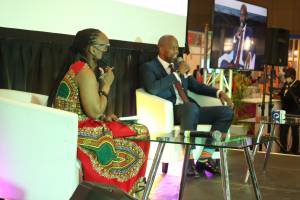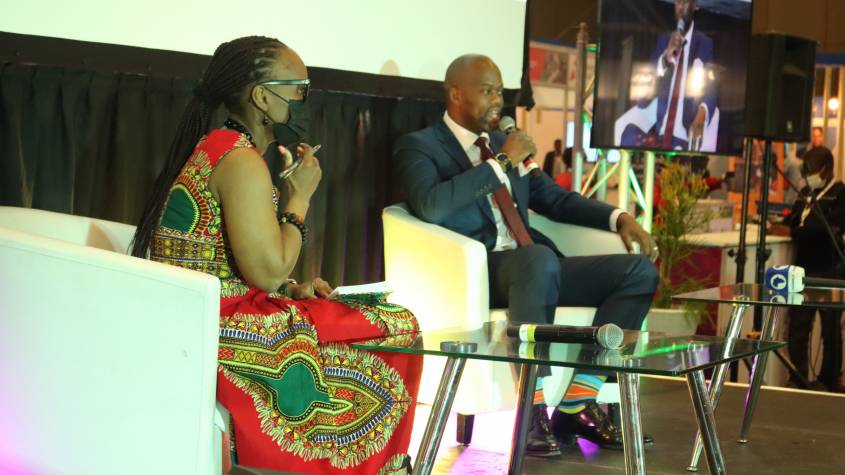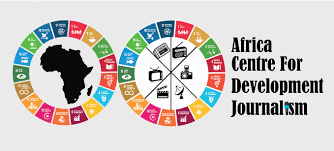How we’ll enable free movement of business persons under AfCFTA – Mene
The Secretary General of the African Continental Free Trade Area (AfCFTA) Secretariat Mr Wamkele Mene Friday said the Secretariat was working on a mechanism to facilitate the free movement of business persons around Africa, as part of efforts to address barriers to free movement of people under the landmark AfCFTA Agreement.
By Adam Alqali

Mene was responding to a question by African Newspage on what the AfCFTA Secretariat was doing to enable free movement of persons under the AfCFTA regime, during a press conference that was a culmination of a week-long series of seminars at the AfCFTA Secretariat’s pavilion in the still ongoing 2nd Intra-African Trade Fair (IATF 2021), holding in Durban, South Africa.
The AfCFTA chief who said he shared the frustrations of Africans on the multiple barriers to the free movement of people across the continent added they were to this end, introducing the Mode 4 mechanism of service supply which would facilitate intra-Africa movement of business persons and subsequently enhance intra-African trade.
“I share your frustration on the movement of natural persons. There is a Free Movement Protocol (FMP) that is before all AU member states. Regrettably, it has been ratified by only 10 or 11 countries which means we still have a long way to go in terms of legal obligation to allow for movement of natural persons. Business people and young entrepreneurs should be able to travel around the continent to conduct their business activities,” stated the secretary-general.
Mene said based on the experience of the European Union, to boost intra-African trade, African leaders had to enable easy movement of natural persons, whom he said would consequently contribute towards boosting intra-African trade. Mode 4 is the fourth mechanism of service supply under the AfCFTA’s protocol on trade in services which allows for temporary movement of natural persons for trade in services.
“What we are doing to enable the free movement of business persons, ahead [of the coming into force] of the Free Movement Protocol is introducing the Mode 4 mechanism which will enable pre-negotiated categories of business persons to have access to the entire continent for the conduct of their business activities. I accept the fact that Mode 4 does not allow for 100% free movement of persons but it is a step in that direction whilst we wait for FMP to be ratified.”
It would be recalled that the FMP was along with the AfCFTA Agreement signed by majority of the AU heads of state and government during the 10th extraordinary summit of the heads of state of the AU held in March 2018 at Kigali, Rwanda. Nonetheless, whereas the AfCFTA eventually became the fastest ratified instrument in the history of the AU – after the Constitutive Act establishing the AU itself – the FMP has thus far not received similar enthusiasm from African heads of state.
Consequently, while 39 AU member states have thus far deposited their instruments of ratification for the AfCFTA, barely 10 member states have done so for the FMP. This is even as the AfCFTA’s boosting intra-African trade and achieving continental integration agenda rests on four basic freedoms – movement of people, capital, goods and services. Thus, the CFTA and FMP are mutually reinforcing instruments neither of which would succeed without the other.














